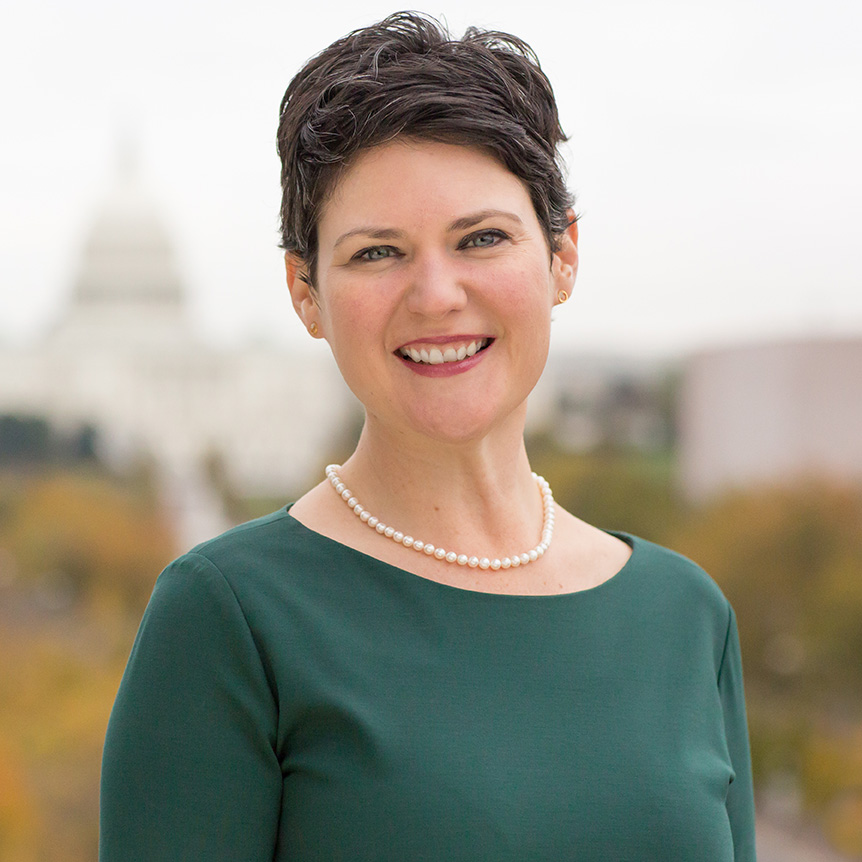
By BJC Executive Director Amanda Tyler
 Same event, same location, same song, new verse. For the second year in a row, President Donald Trump used the National Day of Prayer and a Rose Garden ceremony to unveil an Executive Order purporting to protect religious liberty that threatens to do the opposite.
Same event, same location, same song, new verse. For the second year in a row, President Donald Trump used the National Day of Prayer and a Rose Garden ceremony to unveil an Executive Order purporting to protect religious liberty that threatens to do the opposite.
In establishing the White House Faith and Opportunity Initiative, Trump follows in the footsteps of Presidents George W. Bush and Barack Obama, both of whom had White House offices tasked with strengthening partnerships with faith based and other community organizations working to meet the needs of Americans. We know from our experience, as well as advocacy efforts with the prior two administrations, that government and religious organizations can partner in constitutional ways to deliver social services. Getting it right, however, takes hard work and consultation with a wide array of stakeholders knowledgeable about religious liberty and social services.
The BJC, along with many other church-state groups, worked with the prior administrations to find ways to protect the religious liberty of program beneficiaries. An Executive Order issued by President Obama and federal regulations promulgated by the Obama administration included important safeguards, such as the right of an individual seeking services to a referral to an alternative service provider if he objects to the religious nature of the original agency, as well as written notice of his rights.
Referrals and notices exist to ensure that everyone seeking government services is served on a non-discriminatory basis, and that receipt of government-funded benefits is never conditioned upon one’s religion or participation in religious activities. These basic principles protect the free exercise rights of all Americans and unite groups that may disagree on other details.
But, in this Order, President Trump strikes notice requirements and eliminates any apparent concern for protecting the religious freedom of those seeking government services. Instead, the Trump administration has signaled a commitment to the faith-based providers of services, promising to identify and reduce burdens on their free exercise rights and barriers to providing government-funded services. This shift from tending to the needs of the people served toward making sure the needs of the providers are met is a dramatic change in focus from prior administrations.
Perhaps even more telling were the remarks of Vice President Mike Pence at the ceremony, when he said, “Today, President Trump will take another strong step to protect and promote Americans of faith.” He couldn’t have been referring to protecting the unknown number of Americans of all faiths (and none) who now may be forced to violate their own consciences in order to receive needed government-funded services. While prior administrations have worked to ensure “equal footing” for all those seeking to provide services, whether motivated by their faith or not, this administration is transparent in its objective to promote faith-based providers.
Government officials professing to promote faith should make all Americans, particularly those of us who are Baptist, very nervous. Virginia Baptist preacher John Leland perhaps said it best more than 200 years ago: “The fondness of magistrates to foster Christianity has done it more harm than all the persecutions ever did.” Standing up for religious freedom requires both protecting the free exercise rights of all Americans and ensuring that government neither promotes any one faith tradition nor favors religion over irreligion.
I agree with Melissa Rogers, the former director of the White House Office of Faith-Based and Neighborhood Partnerships and former general counsel of the BJC. In her excellent commentary for the Washington Post, she wrote, “Removing religious liberty protections in the name of religious freedom taints the cause. Honoring freedom for faith-based providers, while taking it away from people receiving services, is wrong. … One way or another, those who value religious liberty and social service partnerships must fix these mistakes.”
You can count on the BJC to work with others who are concerned about the stripping of these important religious liberty protections. We must restore safeguards that will ensure that no American is forced to choose between having her needs met and practicing (or choosing not to practice) her faith.
This article appeared in the May/June 2018 edition of Report from the Capital. You can read a digital version of the magazine or view it as a PDF document.




